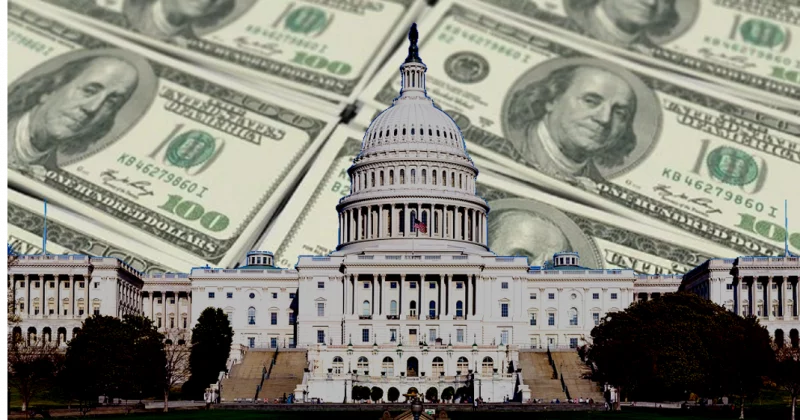In 2011 VC firm Benchmark Capital paid $12 million for a 20 percent stake in Uber. In 2023, Uber can claim debts in the $10 billion range. Hopefully readers can see the connection between the two anecdotes, but if not, please read on.
Benchmark secured a fifth of Uber in 2011 because the expectation was that it would fail. Like the vast majority of venture capital investments. Only for Uber to become arguably the most “Unicorn” of the Valley unicorns in the 2010s.
Fast forward to 2023, and the company given low odds of survival (the why behind Benchmark’s 20% for $12 million) can presently claim a market cap of $89 billion. The previous number explains debt of $10 billion that the 2011 Uber could never have run up. Companies expected to go under generally don’t rate loans.
The Uber example is an easy way to address a recent column by Catherine Rampell of the Washington Post. The title of the deficit-focused writer’s piece was “It’s almost like the GOP never cared about deficits.” The title is true. Government consumption is oxygen for politicians, including Republican politicians who are rhetorically in favor of limited government, but not in reality. Rampell is philosophically in favor of bigger government, but has trouble with deficits. She believes more federal revenues are the answer for deficits. Actually, soaring revenues are the cause.
Not to Rampell. She is very disappointed with Republicans for clawing back increased funding for the IRS. She writes that the GOP proposal “to siphon resources away from IRS enforcement would result in an $8.6 billion loss of revenue” for the U.S. Treasury. Except that the deficit hawk in Rampell should be thrilled. To see why, think about Uber.
Now that it has a market capitalization of $89 billion, it can borrow in the billions. Which is a powerful market signal. Uber is able to borrow billions that it never could have in 2011 precisely because lenders trust its present and future earnings. Basic stuff, plus it ably explains the ability of Treasury to borrow.
Lenders line up to lend to Treasury at the lowest rates in the world simply because they expect tax collection to be sizable now, and even more sizable in the future. Which brings us back to Rampell.
While focusing on “deficits” versus tax collected is to economically draw a distinction with no discernable difference, something about debt and deficits gives Rampell fits. If so, the logical fix for her angst is for Congress to shrink IRS funding even more. The simple truth is that what limits the inflow of dollars to Treasury similarly limits Treasury’s ability to borrow.
What is the simplest of simple bond math is what should have Rampell caucusing not with members of the Left, but with small l libertarians. If her goal is reduced federal borrowing, the only solution is vastly shrunken inflows into Treasury. There’s your “fiscal responsibility.”
John Tamny is editor of RealClearMarkets, Vice President at FreedomWorks, a senior fellow at the Market Institute, and a senior economic adviser to Applied Finance Advisors (www.appliedfinance.com). His latest book is The Money Confusion: How Illiteracy About Currencies and Inflation Sets the Stage For the Crypto Revolution. This article was originally published by RealClearMarkets and made available via RealClearWire.









